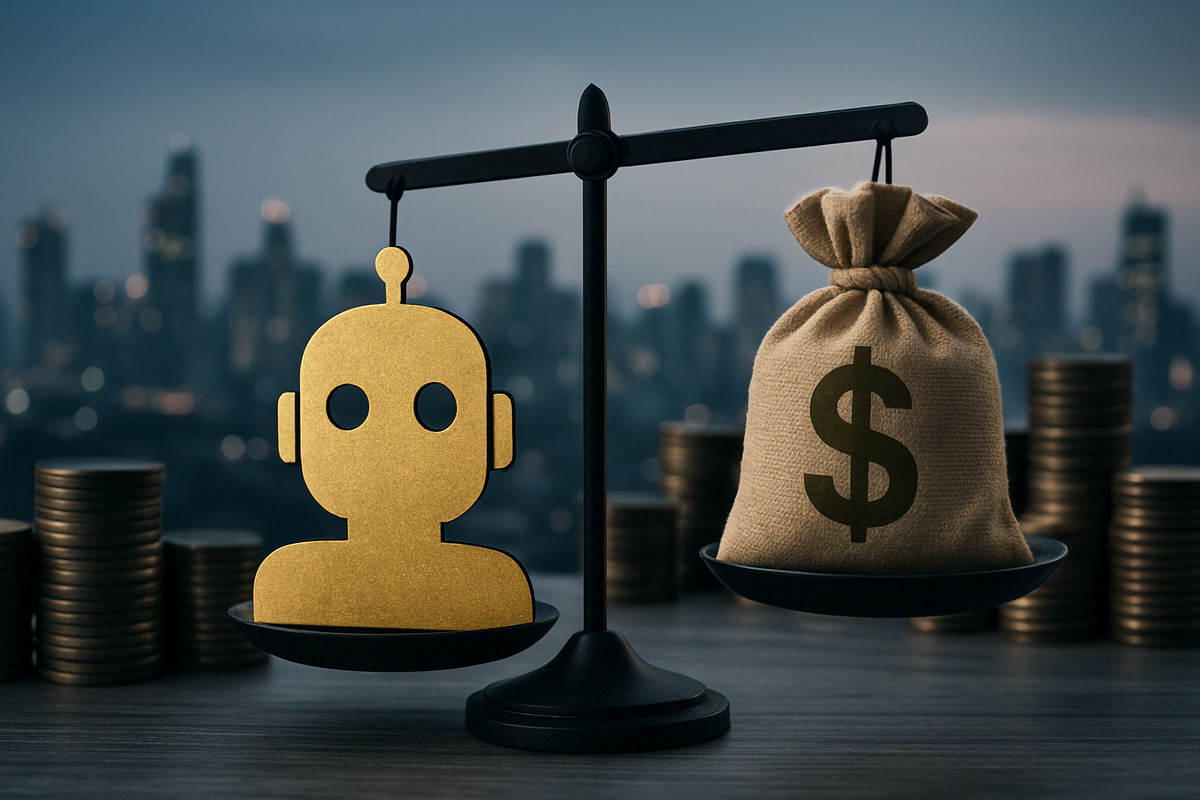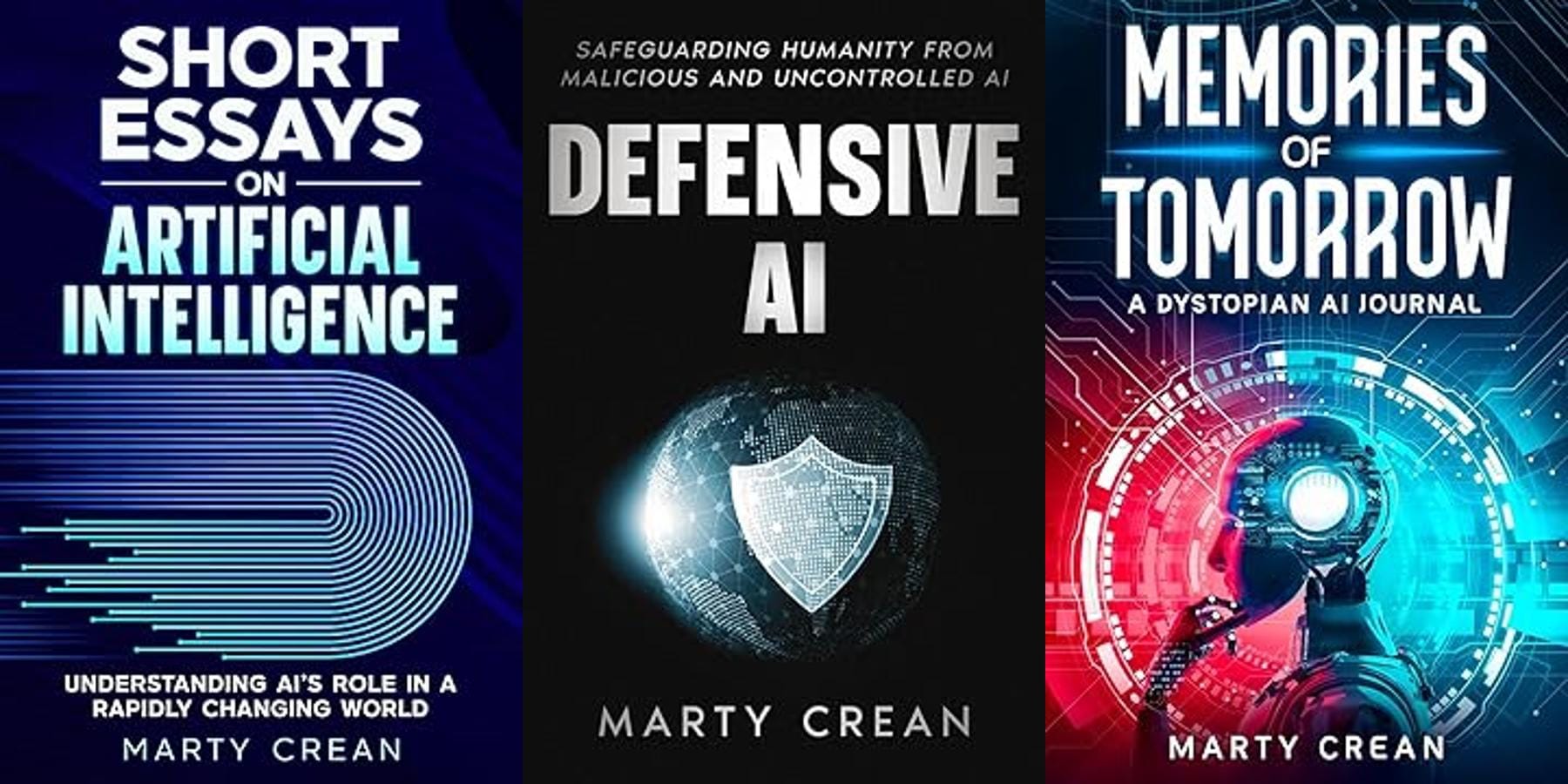A BearNetAI Viewpoint – AI, Abundance and the Vanishing Middle Class

This post is also available as a podcast if you prefer to listen on the go or enjoy an audio format:
We stand at a curious moment in human history. Despite unprecedented advances in automation and artificial intelligence, many working people today struggle more than ever. Technology now exists to produce goods with remarkable efficiency and distribute wealth in ways that could benefit everyone. Yet we remain locked in an outdated economic framework where the fruits of progress flow predominantly upward, leaving behind the very people who keep society functioning.
This widening disconnect between technological capability and economic reality creates a troubling contradiction. As our machines grow more innovative and productive, the promise of shared prosperity slips further from reach. Workers across industries face stagnant wages despite increasing productivity. The cost of essentials such as housing, food, healthcare, and transportation has climbed beyond the reach of many who work in the jobs that form the backbone of modern society. Meanwhile, the wealth gap has expanded beyond a mere divide into a vast rift that few hope to cross.
Perhaps most concerning is the erosion of financial security and hope. Many working people cannot afford to save meaningfully for retirement or unexpected emergencies. The traditional pathway to stability, hard work leading to economic security, has become increasingly unreliable. For many, the dream of building a better future feels like a relic of a bygone era.
The question that haunts our technological age is simple yet profound. Why do we find ourselves mired in economic hardship in an era of such technological marvels? The answer lies not in the technology but in the intentions guiding its deployment.
Artificial intelligence represents the greatest technological frontier of our time. Its potential is virtually limitless. AI could help eliminate poverty, resolve food insecurity, and free humans from tedious, dangerous, or unfulfilling labor. It could create space for us to pursue creative endeavors. Further, it could improve our education, care for one another, and innovation in unimaginable ways.
Technology is neither inherently good nor evil; it's a powerful amplifier of human intent.
Yet, AI is predominantly deployed to reduce costs rather than enhance lives. When corporations implement AI systems, they typically do so with an eye toward efficiency and profitability rather than worker well-being or societal benefit. Technology magnifies the priorities of those who control it. Those priorities often emphasize short-term financial gains over long-term human flourishing.
This trajectory isn't inevitable. It represents a fork in the road of our technological development, not a predetermined destination.
If current trends continue unchecked, artificial intelligence could accelerate the disappearance of middle-class jobs and livelihoods, potentially cementing a new era that resembles digital feudalism more than the promised technological utopia. In this scenario, the benefits of automation would be concentrated among a small segment of society, primarily those who own the technology, control the algorithms, or possess the capital to invest in AI-driven enterprises. These benefits would manifest unprecedented wealth, influence over policy decisions, and the ability to shape markets according to their interests.
At the same time, access to basics like housing, healthcare, and education might become increasingly contingent on one's data, subscriptions, or algorithmic approval rating. Imagine a world where your ability to rent an apartment depends not just on your credit score, but on a proprietary "tenant worthiness" algorithm that evaluates your entire digital footprint. Healthcare access can also be considered partly by wearable device data and adherence to AI-prescribed wellness regimens. Educational opportunities might be allocated based on predictive models of student "success potential" rather than individual aspirations or needs.
This shift represents a fundamental transformation in how society distributes resources and opportunities. Traditional pathways to security through labor would continue to erode as AI systems replace more types of work. Meanwhile, new barriers would emerge in the form of digital gatekeeping. Systems would use data-driven assessments to determine who deserves access to which resources. Those without the means to generate "valuable" data or pay for premium service tiers might find themselves systematically disadvantaged, creating new forms of stratification beyond traditional economic measures.
This isn't dystopian fearmongering. This is a realistic assessment of where unconstrained market forces might lead us without intentional course correction. Technology doesn't demand this outcome; our economic and political choices do.
Fortunately, alternative paths remain open to us. We still have agency in determining what kind of world we're building. The same technologies that could exacerbate inequality could instead be harnessed to create unprecedented abundance and opportunity for all, if guided by different values and governance structures.
What's needed now is not technological breakthroughs but ethical and political imagination. We need bold policies to match our bold technologies. These policies include universal basic income or services, rethinking intellectual property regimes, or developing new models of technological stewardship that give communities a greater say in how these tools are deployed. We need AI governance frameworks that prioritize equitable outcomes alongside innovation. For instance, these frameworks could mean that a certain percentage of the profits generated by AI be reinvested in the communities affected by its deployment. We need business leaders who recognize that sustainable success depends on broadly shared prosperity. And we need political leaders at every level who understand that progress without fairness is not truly progress.
Whatever specific forms these solutions take, they must start by recognizing that technology should serve humanity, not just those fortunate enough to own or control it. Our decisions about AI development and deployment will shape societies for future generations.
The choice is not whether AI will transform our world; it already has and will continue to do so dramatically. The real question is whether we will take deliberate action to ensure this transformation benefits everyone. Suppose we want a future where artificial intelligence is a tool for collective human flourishing rather than concentrated power. In that case, we must work to create the conditions for that outcome.
This means engaging not just as consumers or spectators of technological change but as citizens with a stake in how these powerful tools are governed. As citizens, we can influence policy and hold our leaders and corporations accountable. It means demanding transparency and accountability from tech companies and policymakers alike. It means reimagining our economic systems to ensure that technological abundance translates into material well-being.
The path forward requires courage, creativity, and commitment to values larger than profit or efficiency alone. The ultimate question isn't whether AI can build a better world; it's whether we will guide it to do so and ensure that "better" means better for everyone.
Thank you for being a part of this fascinating journey.
BearNetAI. From Bytes to Insights. AI Simplified.
BearNetAI is a proud member of the Association for the Advancement of Artificial Intelligence (AAAI), and a signatory to the Asilomar AI Principles, committed to the responsible and ethical development of artificial intelligence.
Support BearNetAI
BearNetAI exists to make AI understandable and accessible. Aside from occasional book sales, I receive no other income from this work. I’ve chosen to keep BearNetAI ad-free so we can stay independent and focused on providing thoughtful, unbiased content.
Your support helps cover website costs, content creation, and outreach. If you can’t donate right now, that’s okay. Sharing this post with your network is just as helpful.
Thank you for being part of the BearNetAI community.
BearNetAI, LLC | © 2024, 2025 All Rights Reserved
Books by the Author:
